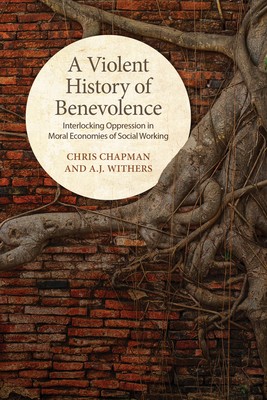
- We will send in 10–14 business days.
- Author: Chris Chapman
- Publisher: University of Toronto Press
- ISBN-10: 1442628863
- ISBN-13: 9781442628861
- Format: 15.2 x 22.6 x 4.1 cm, minkšti viršeliai
- Language: English
- SAVE -10% with code: EXTRA
Reviews
Description
A Violent History of Benevolence traces how normative histories of liberalism, progress, and social work enact and obscure systemic violences. Chris Chapman and A.J. Withers explore how normative social work history is structured in such a way that contemporary social workers can know many details about social work's violences, without ever imagining that they may also be complicit in these violences. Framings of social work history actively create present-day political and ethical irresponsibility, even among those who imagine themselves to be anti-oppressive, liberal, or radical.
The authors document many histories usually left out of social work discourse, including communities of Black social workers (who, among other things, never removed children from their homes involuntarily), the role of early social workers in advancing eugenics and mass confinement, and the resonant emergence of colonial education, psychiatry, and the penitentiary in the same decade. Ultimately, A Violent History of Benevolence aims to invite contemporary social workers and others to reflect on the complex nature of contemporary social work, and specifically on the present-day structural violences that social work enacts in the name of benevolence.
EXTRA 10 % discount with code: EXTRA
The promotion ends in 22d.08:14:44
The discount code is valid when purchasing from 10 €. Discounts do not stack.
- Author: Chris Chapman
- Publisher: University of Toronto Press
- ISBN-10: 1442628863
- ISBN-13: 9781442628861
- Format: 15.2 x 22.6 x 4.1 cm, minkšti viršeliai
- Language: English English
A Violent History of Benevolence traces how normative histories of liberalism, progress, and social work enact and obscure systemic violences. Chris Chapman and A.J. Withers explore how normative social work history is structured in such a way that contemporary social workers can know many details about social work's violences, without ever imagining that they may also be complicit in these violences. Framings of social work history actively create present-day political and ethical irresponsibility, even among those who imagine themselves to be anti-oppressive, liberal, or radical.
The authors document many histories usually left out of social work discourse, including communities of Black social workers (who, among other things, never removed children from their homes involuntarily), the role of early social workers in advancing eugenics and mass confinement, and the resonant emergence of colonial education, psychiatry, and the penitentiary in the same decade. Ultimately, A Violent History of Benevolence aims to invite contemporary social workers and others to reflect on the complex nature of contemporary social work, and specifically on the present-day structural violences that social work enacts in the name of benevolence.


Reviews